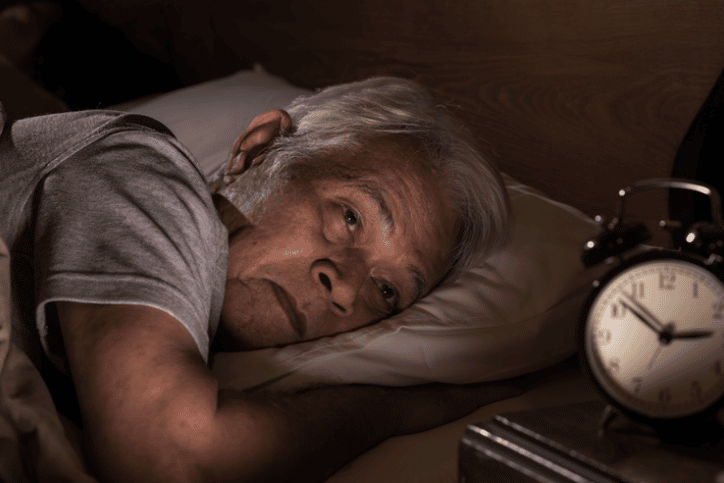Why Do Seniors Have Trouble Sleeping?

It’s commonly known that many older adults have trouble sleeping, and that they often don’t get enough sleep, but what are the causes? Sleep is vital for our physical, mental, and emotional health, and if your senior loved one is having trouble sleeping, it may be due to one of the following reasons.
Heart and Lung Problems
Certain heart and lung conditions, including heart disease and chronic pulmonary disease, can cause sleep disruption in seniors. If your loved one has a history or they’re currently being treated for heart or lung problems, speak with their doctor about how to manage the symptoms so that they don’t disrupt your loved one’s sleep.
Acid Reflux
Acid reflux happens when stomach acid travels from the stomach up to the throat, causing a burning feeling in the chest, commonly referred to as heartburn. People often experience acid reflux after eating a large meal. So if your elderly loved one eats a big meal right before they go to sleep, they run the risk of experiencing acid reflux and having their sleep uncomfortably interrupted. It’s recommended to avoid eating meals, especially large meals, late at night or close to bedtime.
Painful Conditions
There are a range of painful conditions that can interrupt your loved one’s sleep. Some common ones include arthritis, chronic pain, acid reflux, fibromyalgia, soft tissue disorders, and symptoms associated with dementia. If your elderly loved one is being treated for a condition and experiences pain as a side effect, speak with their doctor about how to minimize interruptions to their sleep. Living with pain, especially chronic pain, can be very frustrating – but symptoms can often be managed with medication.
Certain Medications
Some medications have stimulatory effects that can make it difficult to fall asleep, including certain antidepressants, corticosteroids, and decongestants. Always check for caffeine in any over-the-counter medication that you give your loved one, because caffeine can keep them wired – making it harder to fall and stay asleep. There are also medications that act as diuretics, meaning your loved one will need to get up and use the bathroom, perhaps repeatedly, during the night.
Mental Illnesses
Mental illnesses like depression and anxiety can majorly interfere with a normal sleeping schedule. For example, insomnia is a very common symptom of depression, and many people who have depression find that they have difficulty maintaining a regular sleeping schedule. It’s hard to focus on improving mental health without proper sleep, so if you suspect your loved one isn’t sleeping due to a mental health issue, encourage them to speak with their doctor or therapist as soon as possible.
Lifestyle Habits
Seemingly small habits, like having a cup of coffee after noon, can wreak havoc on a normal sleeping schedule. Certain lifestyle habits like drinking alcohol, consuming too much caffeine, not getting any exercise, over-eating unhealthy food, and taking excessive naps during the day can all prevent seniors from getting a good night’s sleep. Even minor lifestyle changes can have a positive impact on a person’s sleep schedule, and it’s certainly worth the investment once you experience the positive effects of a good night’s sleep.
For more information about why seniors have trouble sleeping, or if you’re looking for resources to help your older loved one, please contact our team at UMC today by visiting our website at: https://umcommunities.org




